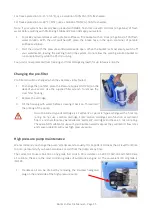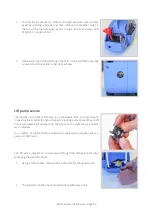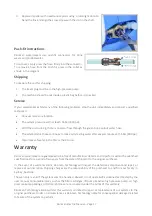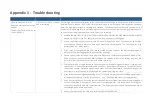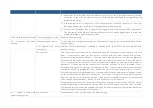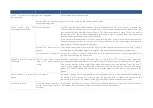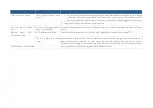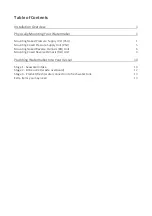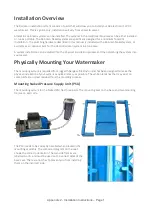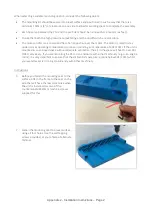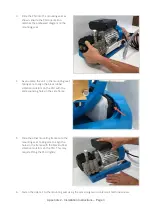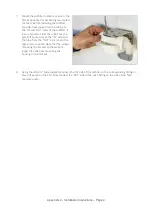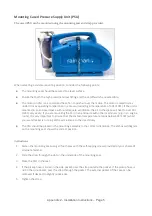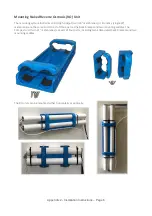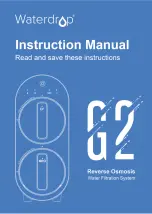
Rainman Electric Manual
–
Page 14
Never allow the bucket to run dry while the pump is running or the system may be damaged.
Never flush your watermaker with water containing chlorine, which will damage the
membranes. That includes town or tap water, which often contains chlorine, or water from
a vessel’s tanks, which also may contain chlorine.
Pickling your watermaker
Pickling fills the membrane housings with a preservative that prevents fouling for up to twelve months.
The best preservative is propylene glycol. Since propylene glycol is a liquid, it is impractical and expensive to
ship and store useful amounts. The most commonly used preservative is food grade Sodium Meta-Bisulphate
(SMBS) mixed from powder. 1 kg of SMBS powder is supplied with your system. This section describes pickling
your system. If you wish to use propylene glycol, instructions are included under the next heading,
Pickling in
cold climates
.
1.
To pickle your watermaker, add 3 X 29ml scoops (approx. 3 heaped tablespoons) of SMBS powder to a
10 litre (2.5 gallon) bucket of fresh water, making a 1% solution of SMBS. After opening the pressure
control valve completely, switch off the unit, remove the intake hose from the source water and place
it in the open container of fresh water. Start the system again, keeping the pressure control valve open
and run the entire contents through the system.
2.
When the bucket is almost empty, switch off your watermaker, leaving the pickling fluid in the system.
Do not allow the pickling solution bucket to run completely dry while the PSU is running.
When storing the unit for more than a month, discard the pre-filter and drain the pre-filter housing.
Your watermaker is now pickled and can be stored for up to twelve months.
Do not use SMBS solution at greater concentrations than specified above. High
concentrations of SMBS can be corrosive and damage your system.
Avoid inhaling SMBS dust or fumes from SMBS solution. Inhalation of SMBS dust or fumes
can cause respiratory problems.
Always store SMBS in a sealed container, in a dry, ventilated place. Even small amounts of
air-borne moisture in an enclosed space can react with the SMBS and create a corrosive
environment.
Pickling in cold climates
If there is a chance that your watermaker
will be exposed to freezing temperatures, you’ll need to pickle the
unit with Propylene Glycol (PG), otherwise known as potable antifreeze. This will prevent damage to the unit
through freezing, as well as preventing biological growth.
There are various brands of potable antifreeze available. It is important to note the percentage of PG in the
product. Potable antifreeze labelled ‘concentrate’ is usually near to 100% PG, however, some brands are pre
-
diluted.
















